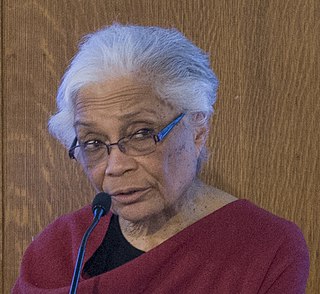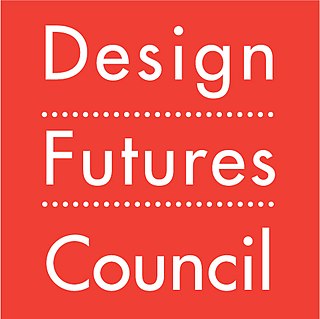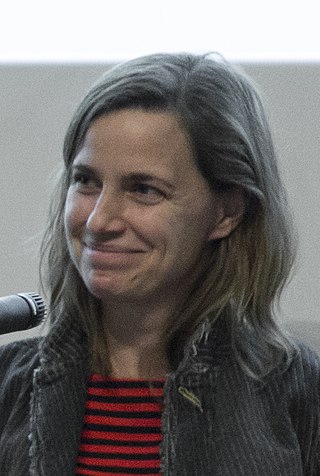
Moshe Safdie is an architect, urban planner, educator, theorist, and author. He is known for incorporating principles of socially responsible design throughout his six-decade career. His projects include cultural, educational, and civic institutions; neighborhoods and public parks; housing; mixed-use urban centers; airports; and master plans for existing communities and entirely new cities in the Americas, the Middle East, and Asia. Safdie is most identified with designing Marina Bay Sands and Jewel Changi Airport, as well as his debut project Habitat 67, which was originally conceived as his thesis at McGill University. He holds legal citizenship in Israel, Canada, and the United States.
The year 2003 in architecture involved some significant architectural events and new buildings.
Sim Van der Ryn is an American architect, researcher and educator. Van der Ryn's professional interest has been applying principles of physical and social ecology to architecture and environmental design.

The Yale School of Architecture (YSoA) is one of the constituent professional schools of Yale University. The School awards the degrees of Master of Architecture I, Master of Architecture II, Master of Environmental Design (M.E.D), and Ph.D in architectural history and criticism. The School also offers joint degrees with the Yale School of Management and Yale School of the Environment, as well as a course of study for undergraduates in Yale College leading to a Bachelor of Arts. Since its founding as a department in 1916, the School has produced some of the world's leading architects, including Norman Foster, Richard Rogers, Maya Lin and Eero Saarinen, among others. The current dean of the School is Deborah Berke.

Michael David Sorkin was an American architectural and urban critic, designer, and educator. He was considered to be "one of architecture's most outspoken public intellectuals", a polemical voice in contemporary culture and the design of urban places at the turn of the twenty-first century. Sorkin first rose to prominence as an architectural critic for the Village Voice in New York City, a post which he held for a decade throughout the 1980s. In the ensuing years, he taught at prominent universities around the world, practiced through his eponymous firm, established a nonprofit book press, and directed the urban design program at the City College of New York. He died at age 71 from complications brought on by COVID-19 during the COVID-19 pandemic.

The Fab Tree Hab is a hypothetical ecological home design developed at MIT in the early 2000s by Mitchell Joachim, Javier Arbona and Lara Greden. With the idea of easing the burden humanity places on the environment with conventional housing by growing "living, breathing" tree homes.

UrbanLab is an American architecture and urban design firm with headquarters in Chicago. Founded by Martin Felsen, FAIA, and Sarah Dunn in 2001, the office is known for its focus on sustainability, creative experimentation and a collaborative approach to buildings, spaces and cities.

Sharon Egretta Sutton, is an American architect, educator, visual artist, and author. Her work is focused on community-based participatory research and design. She is a professor emerita at the University of Washington. In 1984, she became the first African American woman to become a full professor in an accredited architectural degree program while teaching at the University of Michigan. She has also taught at Parsons School of Design, and Columbia University.
Kent Larson is an architect and Professor of the Practice at the Massachusetts Institute of Technology. Larson is currently director of the City Science research group at the MIT Media Lab, and co-director with Lord Norman Foster of the Norman Foster Institute on Sustainable Cities based in Madrid. His research is focused on urban design, modeling and simulation, compact transformable housing, and ultralight autonomous mobility on demand. He has established an international consortium of City Science Network labs, and is a founder of multiple MIT Media Lab spin-off companies, including Ori Living and L3cities.

The Design Futures Council is an interdisciplinary network of design, product, and construction leaders exploring global trends, challenges, and opportunities to advance innovation and shape the future of the industry and environment. Members include architecture and design firms, building product manufacturers, service providers, and forward-thinking AEC firms of all sizes that take an active interest in their future.

The CityCar or MIT CityCar is an urban all-electric concept car designed at the Massachusetts Institute of Technology Media Lab. The project was conceived by William J. Mitchell and his Smart Cities Research Group. It is now led by Kent Larson, Director of the Changing Places Research Group at the Media Lab. The project came into reality in 2003 under the support of General Motors. Time magazine choose the CityCar to be one of the "Best Inventions of 2007".

William John Mitchell was an Australian-born author, educator, architect and urban designer, best known for leading the integration of architectural and related design arts practice with computing and other technologies.
Environmentally sustainable design is the philosophy of designing physical objects, the built environment, and services to comply with the principles of ecological sustainability and also aimed at improving the health and comfort of occupants in a building. Sustainable design seeks to reduce negative impacts on the environment, the health and well-being of building occupants, thereby improving building performance. The basic objectives of sustainability are to reduce the consumption of non-renewable resources, minimize waste, and create healthy, productive environments.
Ecological urbanism draws from ecology to inspire an urbanism that is more socially inclusive and sensitive to the environment. It is less ideologically driven than green urbanism or sustainable urbanism. In many ways, ecological urbanism is an evolution and a critique of landscape urbanism, which argues for a more holistic approach to the design and management of cities. This type of urbanism has a central scope of four main objectives: compactness, complexity, efficiency, and stability. This model of urbanism strives to tackle the current challenges of society by intertwining sustainability and urban occupation models. "Ecological urbanism" was coined by architect and planner Miguel Ruano in his 1998 book Eco-Urbanism: Sustainable Human Settlements, 60 Case Studies. The term first appeared as "EcoUrbanism", which is defined as "the development of multi-dimensional sustainable human communities within harmonious and balanced built environments". The term was used later in April 2003 at a conference at the University of Oregon, and again in 2006 in a paper by Jeffrey Hou. Mohsen Mostafavi used the term in the 2007 publication Intervention Architecture and in a lecture at the Canadian Centre for Architecture. Today, ecological urbanism is recognized as a formal academic research topic. Notably, the Harvard University Graduate School of Design has conducted a conference, held an art exhibition, and published a book all centered around ecological urbanism.
Galen Cranz is a Professor of the Graduate School, Architecture at the College of Environmental Design at the University of California, Berkeley, who studies the social and cultural bases of architectural and urban design. She is a certified teacher of the Alexander Technique, a kinesthetic educational system, who founded the new field "Body Conscious Design."

Kongjian Yu, is a landscape architect and urbanist, writer and educator, commonly credited with the invention of Sponge City concept, and winner of the International Federation of Landscape Architects’ Sir Geoffrey Jellicoe Award in 2020. Received his Doctor of Design Degree from Harvard Graduate School of Design in 1995, Doctor Honoris Causa from Sapienza University of Rome in 2017 and Honorary Doctorate from Norwegian University of Life Sciences in 2019, Yu was elected to the American Academy of Arts and Sciences in 2016.

Terreform ONE is a 501c3 non-profit architecture and urban think tank that advances ecological design in derelict municipal areas. By formulating unsolicited feasibility studies and egalitarian designs, their mission is to illustrate speculative environmental plans for New York City and other cities worldwide. Their intention is to support community outreach and master plan solutions in underprivileged areas that do not have direct access to qualified architects and urban designers.

Kate Orff is an American landscape architect. She is the founding principal of SCAPE, a design-driven landscape architecture and urban design studio based in New York. She is also the director the Urban Design Program (MSAUD) at Columbia University's Graduate School of Architecture, Planning and Preservation and co-director of the Center for Resilient Cities and Landscapes. Orff is the first landscape architect to receive a MacArthur Fellowship.

Martin Felsen is an American architect and Fellow of the American Institute of Architects (FAIA). He directs UrbanLab, a Chicago-based architecture and urban design firm. Felsen's projects range in scale from houses such as the Hennepin, Illinois Residence, mixed-use residential and commercial buildings such as Upton's Naturals Headquarters, public open spaces such as the Smart Museum of Art Courtyard at the University of Chicago, and large scale, urban design projects such as Growing Water in Chicago and a masterplan for the Yangming Lake region of Changde, China. Felsen was awarded the 2009 Latrobe Prize by the American Institute of Architects, College of Fellows.
Richard M. Sommer is a Professor of Architecture and Urbanism and the Director of the Global Cities Institute at the John H. Daniels Faculty of Architecture, Landscape, and Design, University of Toronto. From 2009 until 2020, he was the Dean of the Daniels Faculty. Sommer was born in Philadelphia, and now resides in Toronto, Canada. Trained as an architect and urbanist, Sommer is a leader in architectural education and is a designer and scholar of the built environment.













